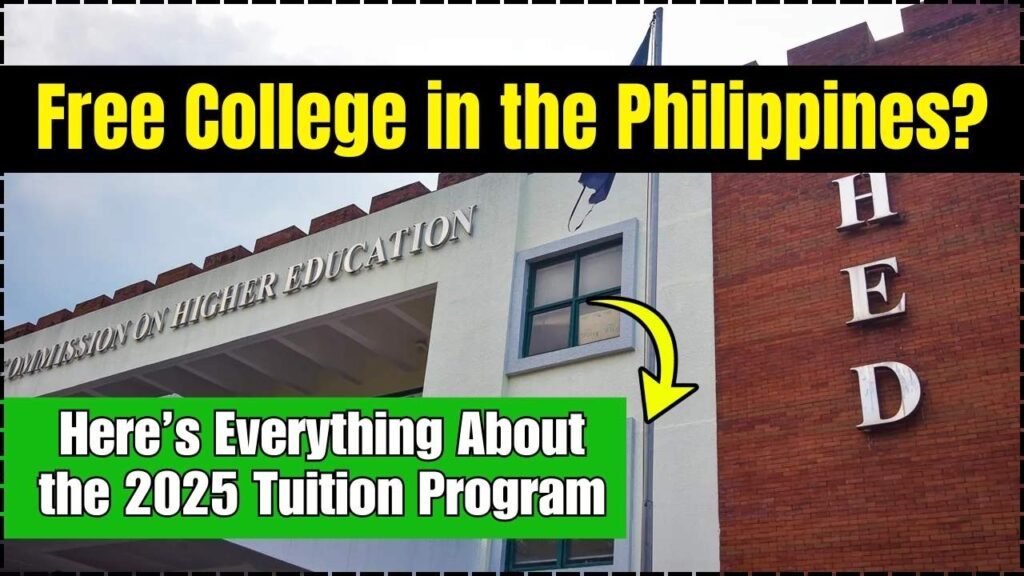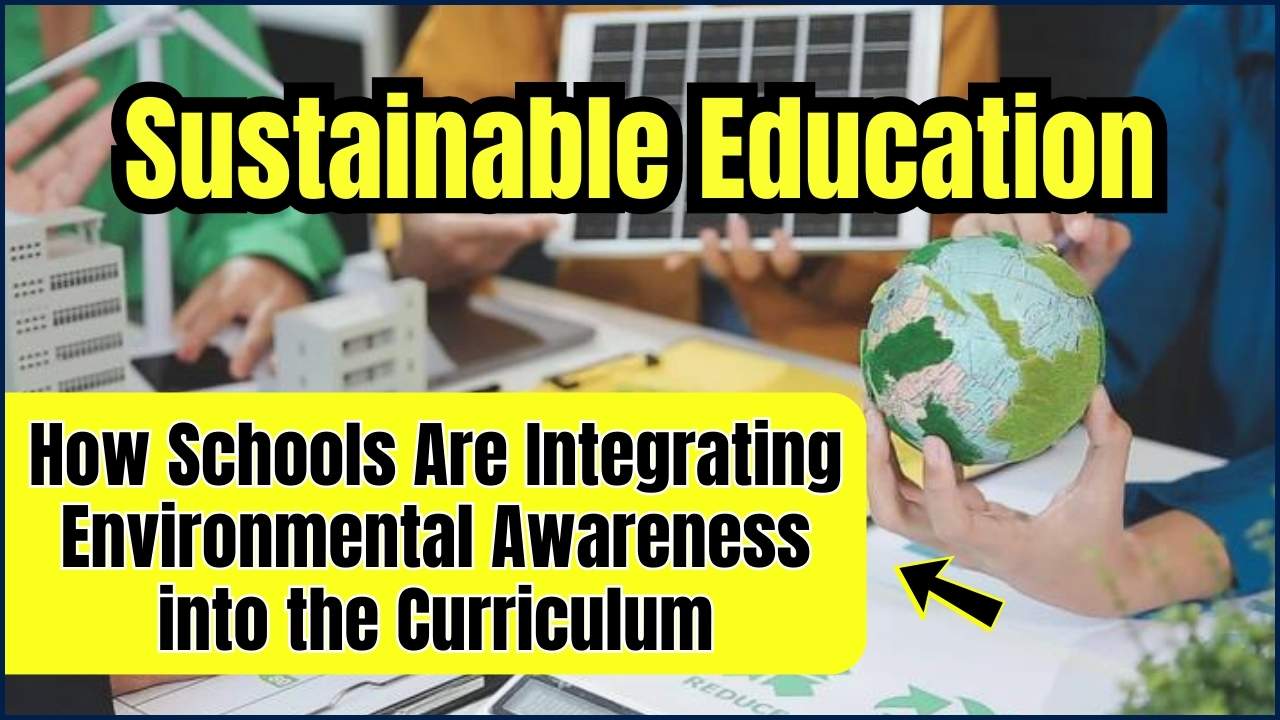
Free College in the Philippines: Imagine going to college without paying a dime. Sounds too good to be true, right? Well, in the Philippines, it’s real. Thanks to the Universal Access to Quality Tertiary Education Act (RA 10931), thousands of students across the country are getting their shot at a free college degree—with zero tuition and zero miscellaneous fees.
And in 2025, the program’s going even stronger, offering bigger opportunities, wider coverage, and more support. Whether you’re a student, a parent, or someone just trying to level up in life—this guide’s got your back.
Free College in the Philippines
| Feature | Details |
|---|---|
| Program Name | Universal Access to Quality Tertiary Education Act (RA 10931) |
| What’s Free? | Tuition and miscellaneous fees in public universities and colleges |
| Who Qualifies? | Filipino citizens pursuing their first undergrad degree |
| Other Support Available | Tertiary Education Subsidy (TES) for private school students |
| Institutions Covered | SUCs, LUCs, and TESDA-run Technical-Vocational Institutions |
| Administered By | CHED + UniFAST |
| Government Funding (2025) | ₱51.1 billion budgeted for free tertiary education and financial aid |
| Official Source | ched.gov.ph |
RA 10931 isn’t just a law—it’s a lifeline. In a world where college debt crushes dreams, the Philippines is showing what’s possible when a nation invests in its people.
So whether you’re fresh out of high school or looking for a second chance, free college is your ticket. Don’t sleep on it—apply now, study hard, and change your life.
What Is the Free College Law All About?
The Universal Access to Quality Tertiary Education Act, passed in 2017, guarantees that students in state universities, local colleges, and TESDA schools won’t have to pay for tuition and other fees.
From 2018 to now, this law has helped millions of Filipinos attend college—many of whom would’ve otherwise dropped out or never applied. In 2025, the government allocated ₱51.1 billion to continue and expand the program.
This covers:
- Tuition
- Miscellaneous school fees
- Library, lab, and ID fees
- Admission and computer lab charges
Who Is Eligible?
Let’s get this straight—you can’t just walk into any college and expect a free ride. You must:
- Be a Filipino citizen
- Be enrolled in your first bachelor’s degree
- Be studying at a SUC, LUC, or public tech-voc school
- Meet the school’s academic and retention requirements
- Not have exceeded the max years allowed to complete your degree
- Not hold a prior college degree
What Schools Are Included?
The law covers 112 State Universities and Colleges (SUCs) and 78 Local Universities and Colleges (LUCs), plus hundreds of TESDA-run vocational institutions. Some well-known examples:
- University of the Philippines (UP)
- Polytechnic University of the Philippines (PUP)
- Mindanao State University (MSU)
- Pamantasan ng Lungsod ng Maynila (PLM)
What If I’m in a Private College?
If you’re in a private institution, you’re not left out. The Tertiary Education Subsidy (TES) offers up to:
- ₱40,000/year for tuition, books, transport, and lodging
- Prioritized for poor and disadvantaged students (based on DSWD’s Listahanan)
TES is a game-changer for working-class students attending non-public schools in regions without SUCs or LUCs.
How to Apply for Free Tuition or TES
For Public School Students:
- Apply to any SUC, LUC, or TESDA school
- Get accepted and meet admission/retention standards
- The school usually handles RA 10931 tagging automatically—no extra forms needed
For TES Applicants (Private School Students):
- Apply through your school’s financial aid office or CHED regional office
- Prepare these documents:
- Proof of income (e.g., ITR, certificate of indigency)
- Valid government ID
- School enrollment form
- DSWD Listahanan ID (if applicable)
- Stay alert for CHED calls and deadlines: CHED Scholarships
Student Success Stories: Real-Life Impact
Maria Lopez, a third-year student at PUP-Manila, says:
“I would’ve stopped school if it weren’t for RA 10931. With four siblings and one breadwinner, this program saved my future.”
Jonathan Cruz, a TES beneficiary in Cebu, shares:
“I’m the first in my family to reach college. Now I’m interning at a tech firm—and it all started with free tuition.”
Comparing to the U.S. and Other Nations
Unlike the U.S., where student loans bury graduates in decades of debt (with the average loan at over $30,000), the Philippines is proving that education can be a public good—not a lifelong burden.
Other nations like Germany also offer free education, but with stricter academic entry barriers and fewer slots. The Philippines is one of few countries in Southeast Asia offering such expansive tuition-free programs.
Long-Term Benefits: Jobs, Mobility, and National Growth
Graduates from the program have a higher chance of employment, especially in education, healthcare, and tech sectors. According to CHED:
- Job placement rates rose by 18% among RA 10931 graduates
- Poverty reduction improved in provinces with the most scholarship grantees
Common Challenges & Regional Issues
- Limited slots in overcrowded colleges like UP and PUP
- Rural areas lack nearby SUCs or internet access to apply
- TES delays due to paperwork or government backlogs
Solution? CHED is working on digitalizing the application process and expanding satellite campuses.
Frequently Asked Questions About Free College in the Philippines
Is this a loan?
Nope. It’s a government-funded grant. You don’t have to pay it back.
What if I change my course?
You can shift, but only within the allowable time frame. Don’t go over your max residency limit.
Can working students apply?
Yes! Many students juggle part-time jobs while studying tuition-free.
How do I know if TES is available in my school?
Check with your school’s registrar or visit UniFAST Official Page.
Pro Tips to Succeed in College With RA 10931
- Stay on top of your grades—free tuition doesn’t mean free passes!
- Connect with student orgs for peer support and resources.
- Apply early for summer jobs, internships, or side gigs to build your resume.











